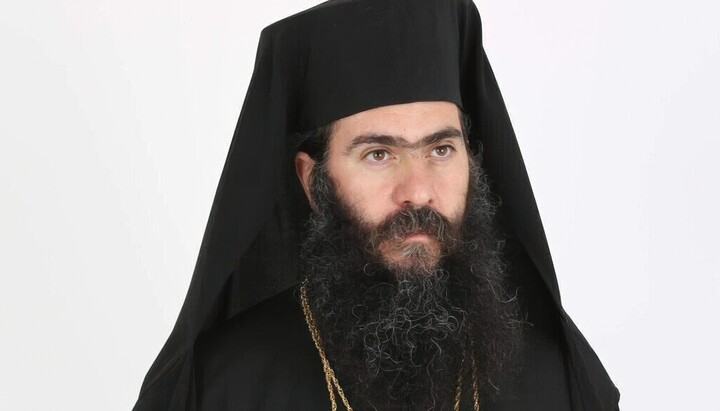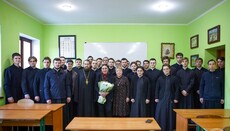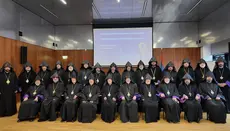Theologian calls Met Tychikos case an example of "upside-down world"

A Greek analyst has accused the Holy Synod of the Church of Cyprus of uncanonical deposition of a bishop for his fidelity to Orthodoxy.
Greek theologian Ioannis Markas has published an in-depth analysis of the case of Metropolitan Tychikos of Paphos on the UOJ Greece platform, describing his removal as an example of a “reversed theological world” where Orthodox hierarchs are punished for remaining faithful to the canons.
In the article, Markas argues that Metropolitan Tychikos was unlawfully deposed for refusing to participate in ecumenical events and for opposing what he calls “Christian modernism.” According to the author, the hierarch became the target of a “months-long campaign of slander,” orchestrated by both ecclesiastical and political circles.
The central incident in the conflict was Metropolitan Tychikos’s refusal to participate in joint Orthodox-Catholic events in Paphos connected to the transfer of the relics of the Apostle Paul from Rome to Cyprus. Markas portrays this stance as a principled act of fidelity to the faith.
The author criticizes contemporary Orthodox primates for “intensified tendencies of secularization and apostasy,” which he associates with the “pan-heresy of ecumenism.” In his view, many bishops have become mere “Latin-front hirelings,” having forgotten their true vocation as guardians of the faith.
Markas is particularly critical of the modern concept of a bishop as a “dependent institutional mechanism of the state,” performing administrative functions and adhering to politically correct protocols. In contrast, he presents Metropolitan Tychikos as a true shepherd of the faithful.
The article cites official reports stating that opposition to Metropolitan Tychikos came from the Ecumenical Patriarchate, the Church of Greece, Metropolitan Barnabas of Neapolis, and the Greek government – evidence, the author claims, of a coordinated campaign against the bishop.
Markas quotes St. Justin Popovich, who said that “true and consistent Orthodox Christians never enter mixed marriages or ally themselves with heretics or unbelievers.” This, he suggests, explains the principled stance taken by Metropolitan Tychikos.
The author contends that the bishop’s accusers distorted several Holy Canons, portraying his faithfulness as a breach of Church discipline. He calls this a “complete inversion” of canonical law.
Markas warns that violating the Holy Canons can lead to “a mortal and unforgivable sin of blasphemy against the Holy Spirit.” He insists that the canons were established by the Holy Spirit and are therefore immutable.
The case of Metropolitan Tychikos is presented as part of a wider crisis in contemporary Orthodoxy, where traditional values are under attack from ecumenist trends. The author calls for a return to patristic tradition and strict canonical order.
In conclusion, Markas expresses hope that the Lord will strengthen Metropolitan Tychikos “on his path of confessing the faith,” underscoring his role as a confessor of Orthodoxy in today’s world.
Earlier, the UOJ reported that a Greek lawyer had called the deposition of the Bishop of Paphos an act of totalitarianism.











